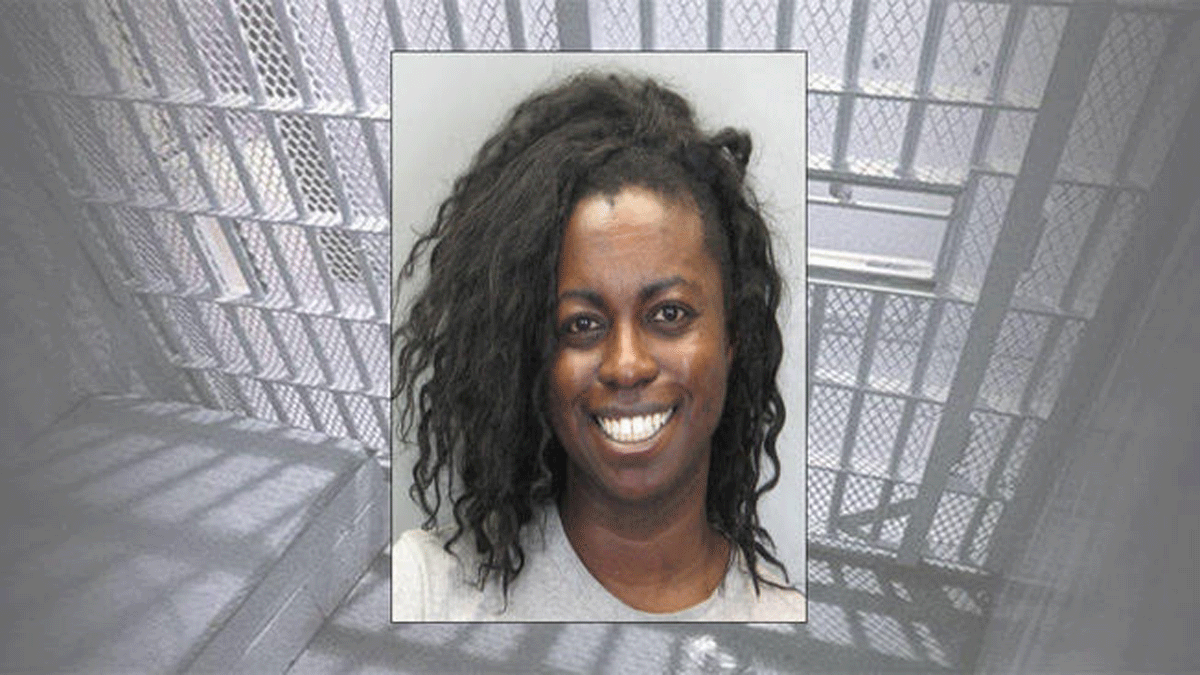FAIRFAX, Va. — Demonstrators marked the day a Fairfax County inmate died following a struggle with sheriff’s deputies one year ago by recalling her life and demanding justice for her death.
“We’re here to remember Natasha McKenna’s life and how it was stripped away from her in a torturous way,” says Erika Totten, a member of Black Lives Matter DMV. “She called asking for help and ended up being criminalized and tortured until she died.”
The small band of demonstrators gathered Tuesday outside the entrance of the Fairfax County Adult Detention Center where 37-year-old McKenna was held in custody and where she was fatally injured. McKenna, who suffered from multiple mental forms of mental illness, died on Feb. 8, 2015 — five days after the encounter with deputies who were trying to remove her from her cell and transfer her to another facility.
“Say her name,” a protest organizer shouted through a bullhorn. “Natasha McKenna,” demonstrators responded in a solemn chant.
The medical examiner ruled that McKenna’s death was accidental, caused by excited delirium associated with physical restrain including the use of an electronic control weapon. She received four strikes from a stun gun in the span of just 2 minutes.
Fairfax County Commonwealth’s Attorney Ray Morrogh found no evidence that the deputies acted unlawfully or unreasonably in their struggle with the woman who stood 5-foot-4 and weighed 181 pounds.
“To this date, there’s been no charges filed, no indictment, no one fired … there’s no justice for a completely wasteful and unnecessary death of a woman who was very ill,” says Karen Wolf, a member of the group called Showing Up For Racial Justice, Northern Virginia.
Following the midday rally outside the detention center demonstrators also planned an evening vigil in McKenna’s honor at All Saints Episcopal Church in Alexandria.
Sheriff Stacey Kincaid promised to make changes at the jail, where roughly 40 percent of inmates suffer from some form of mental illness. She introduced a telepsychiatry service and had advocated to provide treatment for such individuals instead of housing them at the jail.
McKenna had been previously diagnosed with schizophrenia and bipolar disorder and had visited several hospitals in the days leading up to her detention at the Fairfax County jail.








